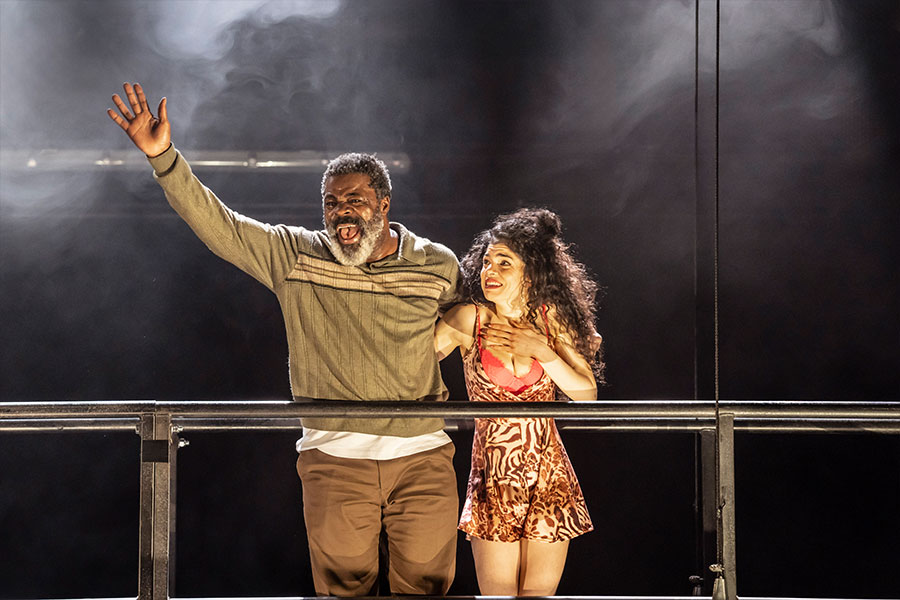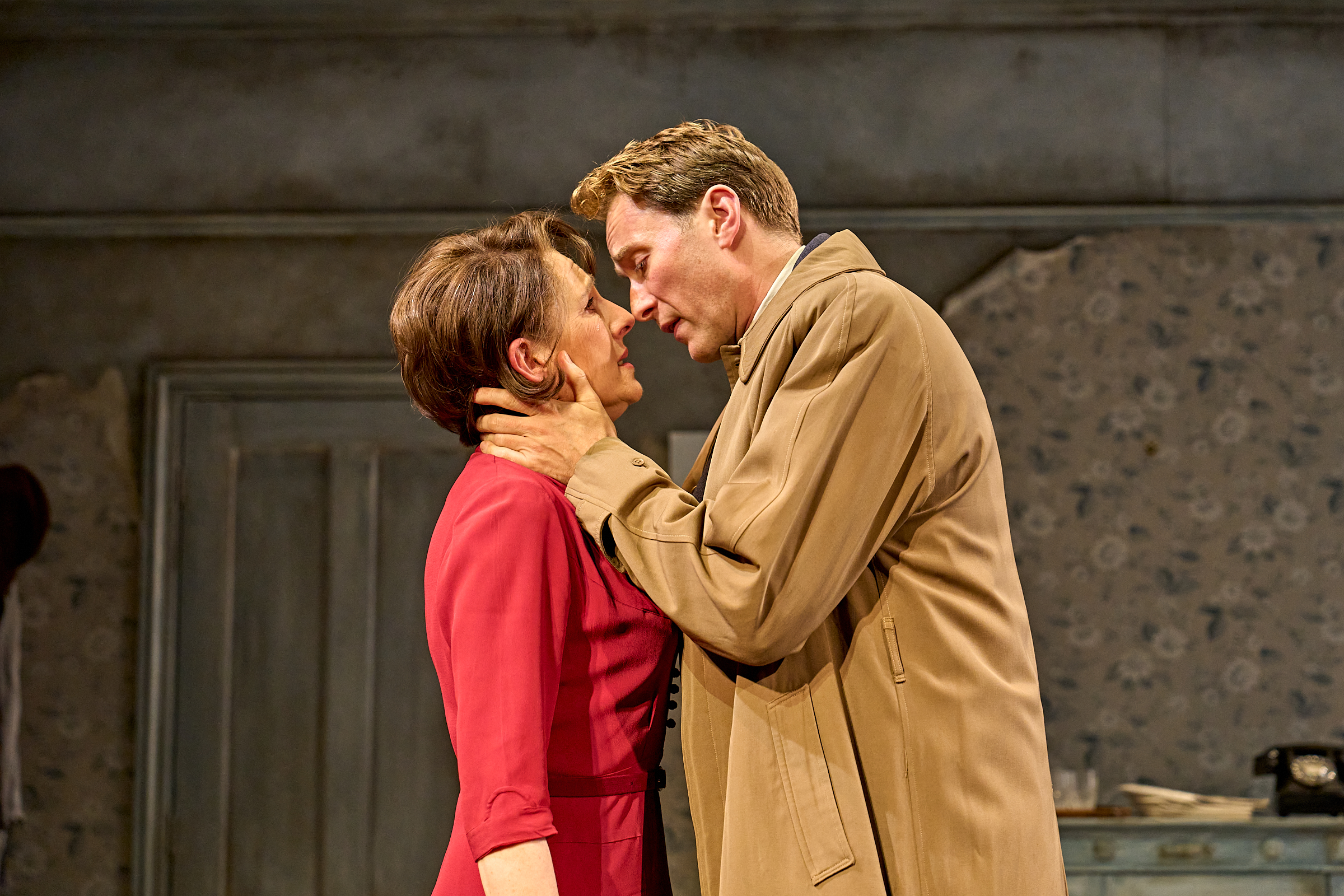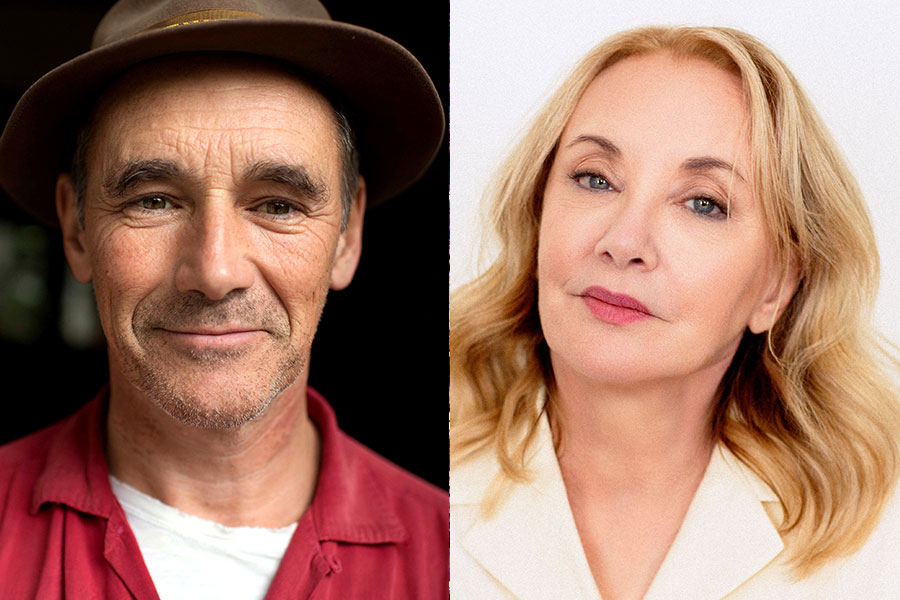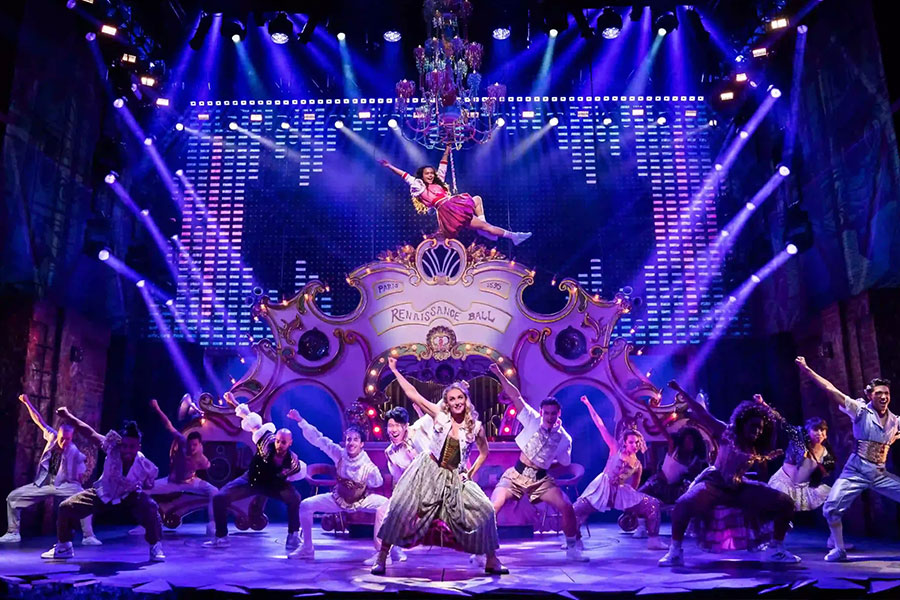Complex Issues: Getting to Grips with Oedipus
Oedipus, Schm-Oedipus … you know the Jewish joke about the boy who loved his mother so much that he couldn’t wait to get back inside her. Well, the character is treading the boards once more at the National Theatre, where Ralph Fiennes plays the hapless avenger who kills his father, unknowingly marries his mother and brings down the wrath of the gods, in a new version by Irish playwright Frank McGuinness and co-starring Clare Higgins as the doomed mother Jocasta and Alan Howard as the prophet Teiresias.
Dramatic enrichment
Sophocles’s fifth-century Greek tragedy – in Aristotle’s view the most perfect of the genre – is probably the most continuously performed play of all time, despite disappearing from view, along with most Greek art, in the Middle Ages. And since Sigmund Freud invented, or discovered, the Oedipal complex in his Interpretation of Dreams – observing that children often seem to fall in love with one parent while developing a hatred for the other – the story has enriched our way of looking at the whole of dramatic literature from Shakespeare and Noel Coward (The Vortex) to Steven Berkoff (Greek) and more recently Polly Stenham (That Face).
This process was highlighted 30 years ago, when Jonathan Miller directed a Sons and Mothers season at Greenwich Theatre with productions of Hamlet, Chekhov’s The Seagull and Ibsen’s Ghosts. The “mother” figure in all three was played by Irene Worth, who had featured as Jocasta opposite John Gielgud in the notorious 1968 National Theatre production by Peter Brook of Seneca’s Oedipus at the Old Vic. The Seneca version, much bloodier and more raucous than its Greek model, was translated by Ted Hughes. When Gielgud struck out his eyes, the blind Teiresias handed him a pair of dark glasses.
Forty years on, I doubt if director Jonathan Kent at the National will reveal his chorus lashed to the pillars of the auditorium (there are none in the Olivier) or wheel on a giant yellow phallus (“No one we know, dear,” remarked the actress Coral Browne in the Old Vic stalls) followed by a jazz band playing “Yes, We Have No Bananas”. The ten-week rehearsal period had included much improvisation. In one exercise, Brook asked his actors to proceed, one by one, to the front of the stage and recount the most terrifying thing they could imagine. Gielgud simply said, “We open on Tuesday.”
Cries of anguish
The double cry of anguish Oedipus emits on learning he has slain his father and married his mother is one of the great acting challenges facing Fiennes. We have Kenneth Tynan to thank for his account of Laurence Olivier’s famous performance in 1945 at the New Theatre (now the Noël Coward) when the Sophocles play, translated by WB Yeats, was given on a double bill with Sheridan’s The Critic, Olivier playing Puff. As Oedipus, Olivier strode on through the chorus like a panther among doves, the black finger curls of his wig surmounting an arrogant, sensitive built-up nose.
Tynan said that Olivier’s two great cries created a kinship between those who were there and heard them, as if they’d been on the Somme together. Much later, Olivier told the critic that he had once visited an ermine ranch in Canada and had never forgotten the high-pitched wailing of an ermine caught in a trap.
Another version holds that Olivier was reproducing the cry of a baby seal trying to loosen its own tongue, frozen to the ice. Whatever the trick he used, Tynan reckoned Olivier conveyed so vast an anguish that the lyric cry “must still be resounding in some high recess of the New Theatre’s dome; some stick of wood must still, I feel, be throbbing from it”.
That same Yeats translation was used in the 1973 production at the Abbey in Dublin, which visited the Edinburgh Festival in the following year. It was a rather decorous affair, with lots of curly wigs and white togas. Desmond Cave manufactured the great cry, but it was more of a whimper. The animal magic was missing, too, from a 1983 Oxford Playhouse presentation of all three “Oedipus plays” – Oedipus Rex, Oedipus at Colonus and Antigone – in a superb new text by Stephen Spender.
From king to prophet
Seneca according to Ted Hughes was revived to general acclaim at the Almeida in 1988, with John Shrapnel as Oedipus, Julie Legrand his unlikely mother and Phil Daniels as Creon. But the new benchmark is really the Peter Hall production of both Oedipus plays at Epidaurus in Greece and the National’s Olivier in 1996, in a translation by Ranjit Bolt that did not fight shy of banality, nor fail the high-flown rhetoric, and with actors wearing masks as voice-boxes in the ancient Greek theatre manner.
The new National Teiresias, Alan Howard, played the king. I shall never forget him, silver-tongued and swaying slightly, emerging from the distant trees in the forest around Epidaurus before ascending the 50-foot platform extended into the plague-infested city of Thebes, where ten burning oil drums defined the circle of the action, and 10,000 people sat beneath an open sky for shared tales of horror and revelation.
In the second Oedipus play, Howard’s vocal range encompassed a shivering wisdom in the pathos, and a granite-like stoicism that prepared him well for the later challenges with Hall of King Lear and Waiting for Godot.
Jocasta & Jung
Similarly, the NT’s new Jocasta, Clare Higgins has previously struck the authentic Greek tragedy note in her full-on performances in Tennessee Williams (Sweet Bird of Youth and Night of the Iguana) and as Hecuba at the Donmar Warehouse (in another Frank McGuinness translation, also directed by Kent, for which she won a Best Actress Olivier) and as the incestuous mother in Racine’s Phaedra, based on Euripides, at the same address (McGuinness again translating, with Kent directing).
Not for nothing has the actress also trained as a Jungian psychotherapist, mentoring lots of people with drink and drugs problems. And there will be more tragic Grecian tears when Phaedra arrives at the National Theatre next June (directed by Nicholas Hytner), with Helen Mirren playing the queen who fatally nurses a illicit love for her stepston, Hippolyte and Margaret Tyzack as her nurse and confidante Oenone.
Ralph Fiennes might be said to have developed his own personal Oedipal complex when, as Hamlet at the Hackney Empire (an Almeida production, again with Kent in the director’s chair), he discovered a closer than usual personal affinity with his Gertrude played by Francesca Annis. Their friendship developed into a relationship that has only recently been terminated. Fiennes also researched another aspect of the role as the blind American former diplomat in the very last Merchant Ivory collaboration (Ismail Merchant died during the shoot), The White Countess.
Sophoclean scholarship
We know even less about Sophocles than we do about Shakespeare. He was born at Colonus, a pleasant suburb of Athens and setting for the second Oedipus play, probably in 494 BC. He won prizes at the festivals (though Oedipus Rex only took a second prize!), held civic office and fought as a general in the war of 441-438. And that’s about it.
We don’t know enough either about the first staging of these dramas to be certain of how they might have looked, but most scholarship these days tilts towards their contemporary application anyway. Oedipus might have been written after the start of the Peloponnesian War in 427, Oedipus might be a portrait of Pericles himself. No one can be sure. Instead, the drama reverberates down the ages and reveals the soul of man in his darkest hour.
As another translator, the television writer Don Taylor once said, “Plays in which subject matter and dramatic form are wedded with such perfection as they are in Sophocles are never likely to be dead, but each age has to make them live in its own characteristic way.”
Oedipus opens on 15 October 2008 (previews from 8 October) at the National Theatre, where it runs in rep in the NT Olivier until 4 January 2009 before embarking on an international tour. A version of this article appears in the current October issue of What’s On Stage magazine, which is available now in participating theatres. Click here to thumb through our online version. And to guarantee your copy of future print editions – and also get all the benefits of our Theatre Club – click here to subscribe now!!
** Our Whatsonstage.com Outing to
OEDIPUS on 13 November 2008 – including a FREE drink & EXCLUSIVE post-show Q&A – all for £24.50! – is now completely SOLD OUT!
– click here to join the waiting list! **










